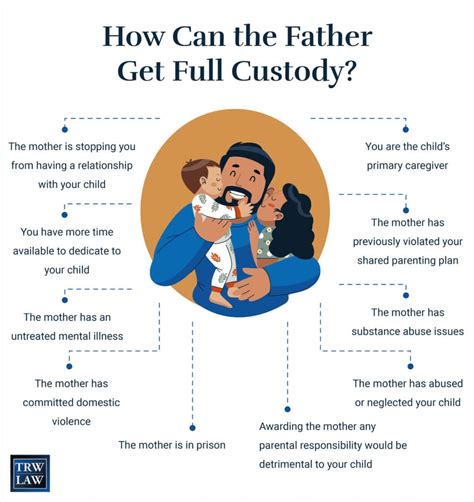Florida Child Custody: A Parent's Guide to Obtaining Full Custody
Navigating the complexities of Florida child custody can be daunting, especially when seeking full custody. This guide provides a comprehensive overview of the process, outlining the legal framework, common misconceptions, and strategies for a successful outcome. Remember, this information is for educational purposes and does not constitute legal advice. Always consult with a qualified Florida family law attorney for personalized guidance tailored to your specific circumstances.
Understanding Florida's Child Custody Laws
Florida courts prioritize the best interests of the child when determining custody arrangements. This isn't simply about who the child prefers; it's a holistic assessment considering various factors. These factors include:
- The child's physical and emotional well-being: The court will analyze each parent's ability to provide a stable, nurturing environment.
- Each parent's capacity to provide for the child's needs: This encompasses financial stability, housing, healthcare, and educational opportunities.
- The parents' willingness to cooperate: Courts favor arrangements that encourage both parents' involvement in the child's life.
- Evidence of domestic violence or substance abuse: These factors significantly impact custody decisions.
- The child's wishes (if age-appropriate): While not the sole deciding factor, older children's preferences are considered.
What Does "Full Custody" Mean in Florida?
In Florida, "full custody" doesn't exist in the traditional sense. Instead, the court may grant one parent sole parental responsibility or primary residential custody. This parent has the primary decision-making authority regarding the child's education, healthcare, and religious upbringing. The other parent typically receives time-sharing or visitation rights, allowing for scheduled contact with the child. The specifics of time-sharing are highly individualized and depend on the facts of each case.
How Can I Increase My Chances of Obtaining Primary Residential Custody?
Securing primary residential custody requires a strong case demonstrating your ability to provide the best environment for your child. This involves:
- Demonstrating stability: Stable housing, employment, and a consistent routine are crucial.
- Presenting evidence of the other parent's shortcomings: This might include evidence of neglect, abuse, substance abuse, or consistent failure to fulfill parental responsibilities. Documentation is vital.
- Highlighting your active involvement in the child's life: Provide evidence of your consistent involvement in school activities, healthcare appointments, and overall participation in your child's daily life.
- Cooperating with the court process: Responding promptly to court orders, participating in mediation, and demonstrating a willingness to work towards a solution benefits your case.
- Presenting a comprehensive parenting plan: This plan details the proposed schedule for visitation, decision-making, and financial responsibilities. A well-crafted parenting plan showcasing your commitment to the child's best interests is highly valuable.
What if the Other Parent Objects to My Request for Primary Residential Custody?
If the other parent opposes your request, the case will likely involve a hearing or trial. You'll need to present compelling evidence to support your claim. This could include witness testimony, medical records, school records, police reports, or financial statements. Your attorney will guide you through this process.
Can I Obtain Full Custody if I've Been Accused of Domestic Violence?
Accusations of domestic violence significantly impact custody cases. Even if the accusations are ultimately proven false, they can still negatively affect your chances of obtaining primary residential custody. It's crucial to address these accusations directly and thoroughly with legal counsel. Demonstrating rehabilitation and a commitment to creating a safe environment for your child is critical.
What Happens After a Custody Order is Issued?
Once a custody order is in place, it's legally binding. Modifying the order requires demonstrating a significant change in circumstances. For example, a change in jobs, relocation, or a significant change in the child's needs could justify a modification.
Seeking Legal Counsel: The Crucial First Step
This guide offers general information. The specific requirements and procedures in Florida child custody cases vary greatly. Seeking advice from a skilled family law attorney is crucial. A lawyer can assess your unique situation, build a strong case, and represent your interests effectively throughout the process. Remember, your child's well-being is paramount, and a legal professional can guide you toward the best possible outcome.

